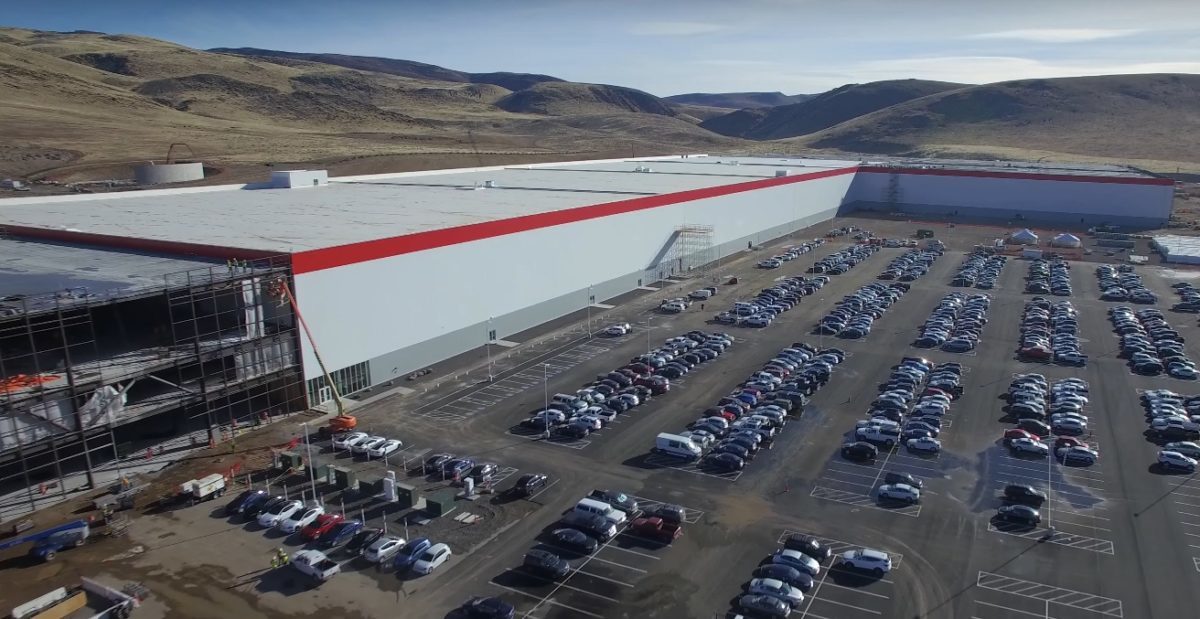Covering Tesla can be a challenge.
Elon Musk’s unconventional habit of releasing major information by tweets from this personal account is only one of the idiosyncrasies that the company has regarding information sharing, and Tesla’s culture of secrecy means that getting up-to-date metrics on the progress of the company’s solar and battery factories can be nearly impossible.
However, last week we received more information about the progress of the Tesla/Panasonic Nevada battery gigafactory via a report filed with the Nevada Governor’s Office of Economic Development, which shows the truly awesome scale that the factory has achieved, as a major employer for the Reno area.
The report finds that as of December 31, 2017, the factory had already reached 3,249 employees, working at an average salary of just under $35 per hour. The minimum wage for these employees was $22 per hour, and 94% of those surveyed were Nevada residents.

It also shows that $3.7 billion had been invested in the plant, which is expected to be the world’s largest factory – and largest building by square footage – when complete.
The building’s potential 70 MW solar power project started construction back in March, and per recent reports has continued that construction. The company has a goal to completely power itself onsite.
Popular content
These numbers were verified as part of Tesla’s compliance with state standards for obtaining tax credits, with tax credits totaling $23 million for the fourth quarter of 2017, and $167 million to the end of 2017.
More to come
While these numbers indicate an awesome scale, the best may be yet to come. These metrics provide a snapshot of the facility that is nearly nine months old. In the interim, Tesla and Panasonic have continued to expand the gigafactory, whose batteries are primarily dedicated to electric vehicles.
But Musk has also reported “mad growth” in Tesla’s stationary energy storage business, with 40% more batteries deployed in the first two quarters of 2018 versus all of 2017.
Such metrics provide a counterpoint to the negative coverage that Tesla and Musk have received in the wake of Musk’s seemingly impulsive announcement that he was considering taking Tesla private two weeks ago.
While Musk’s moves are unconventional, it would be a mistake to underestimate him, or this company.
This content is protected by copyright and may not be reused. If you want to cooperate with us and would like to reuse some of our content, please contact: editors@pv-magazine.com.


By submitting this form you agree to pv magazine using your data for the purposes of publishing your comment.
Your personal data will only be disclosed or otherwise transmitted to third parties for the purposes of spam filtering or if this is necessary for technical maintenance of the website. Any other transfer to third parties will not take place unless this is justified on the basis of applicable data protection regulations or if pv magazine is legally obliged to do so.
You may revoke this consent at any time with effect for the future, in which case your personal data will be deleted immediately. Otherwise, your data will be deleted if pv magazine has processed your request or the purpose of data storage is fulfilled.
Further information on data privacy can be found in our Data Protection Policy.